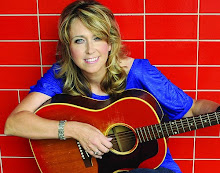
Why the arts matter even during a recession
At a concert in Erie, Pennsylvania, I sang a song called "In Good Hands." Afterward, the church's custodian stopped by. "When you was singing that song about Jesus' hands," he said, "the sun was setting behind you, and it was making them stained glass pictures of Jesus glow. The sound of your buddy's violin was bouncing off these stone walls, and, well, you was saying more than you was even saying."
In these tough times, I worry that violins and stained glass and folk songs may become extraneous. Many people are in a state of financial frostbite; just as blood flow to the extremities is restricted to save vital organs in a case of hypothermia, resources for less essential items must be diverted during an economic crisis. Who's going to buy tickets to a film festival, ballet, or concert when there isn't enough money for groceries?
What business do I have writing songs when there is practical work that needs doing? Do the arts matter? Are they expendables or essentials?
Karl Paulnack, director of the music program at the Boston Conservatory, tells the story of Olivier Messiaen, a French composer who was 31 when he was sent to a Nazi concentration camp. Messiaen convinced a sympathetic prison guard to provide paper and a place to compose; in January 1941, his Quartet for the End of Time was performed for 4,000 prisoners and guards. To this day, it is considered a masterpiece.
Paulnack asks, "Given what we have since learned about life in the concentration camps, why would anyone in his right mind waste time and energy writing or playing music? … And yet—from the camps, we have poetry, we have music, we have visual art … Why? Well, in a place where people are only focused on survival, on the bare necessities, the obvious conclusion is that art must be, somehow, essential for life. Art is part of the human spirit, an unquenchable expression of who we are."
The Christian faith provides an explanation for the resilience of the human creative impulse. Consider God's first revelation about himself, the first five words of the Bible: In the beginning, God created. When we help make something—when we participate in bringing "cosmos out of chaos," as writer Madeleine L'Engleput it—we affirm the fact that we are made in the image of the Creator. No wonder we can't help ourselves. We are made to participate in the arts.
There are a thousand arguments for the usefulness of the arts in the church. Paintings and plays let us say things that we could never express in direct conversation, giving them great evangelistic potential. Poems and visual icons can be powerful discipleship tools, and Scripture mandates the use of song. Music and poetic liturgy have long been essential mechanisms for communal worship.
But the arts are also important for less obvious reasons. When we witness the transformation of raw material into something beautiful, we are encouraged to remember that other new realities can be made—that perhaps justice can be created where there is injustice, wholeness can be wrought where there is disease and poverty, and community can be made even from discord. Beauty not only suggests these ideals are possible, but it also awakens a longing for them.
When songwriter Sara Grovestold International Justice Mission founder Gary Haugen that she wanted to quit music and become a lawyer in support of the cause, Haugen told her she must continue in the important work she was already doing to move hearts and minds toward justice. The arts are not in competition with efforts against injustice; they are an essential part of the fight.
But the arts do even more than help us believe in transformed realities: they kindle faith in unseen realities. My own sense of transcendence is nurtured primarily by beauty—in the created world (mountains, oceans, wildflowers) and in the world we help create (poems, songs, sculpture). By convincing us that there is something more than the material realm of atoms and synapses, the arts open a vista to belief in God.
And when we meet this God, our creativity becomes one of the ways we delight in him. The Message translation of Genesis says that we were created "reflecting God's nature." When we are lost in some endeavor—consumed by singing a song, dancing a jig, building a presentation, or telling a story—people say we are "in our glory." In truth, we are in God's glory, participating in the beauty overflowing from the Creator himself.
Those are the times we wind up saying more than we are even saying, and knowing more than we could know any other way.
Copyright © 2009 Christianity Today. Click for reprint information.
Comments welcome below or on CT's Site.
Take Christianity Today's Arts Poll ("Are You Cutting Back on Spending Money on the Arts?")




